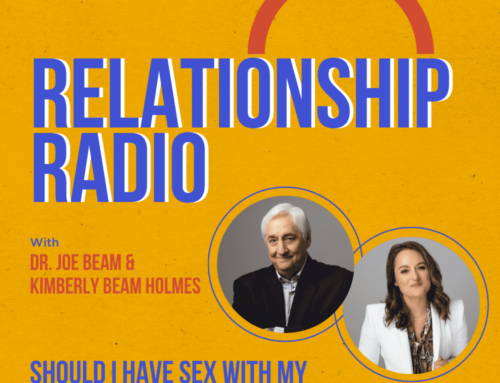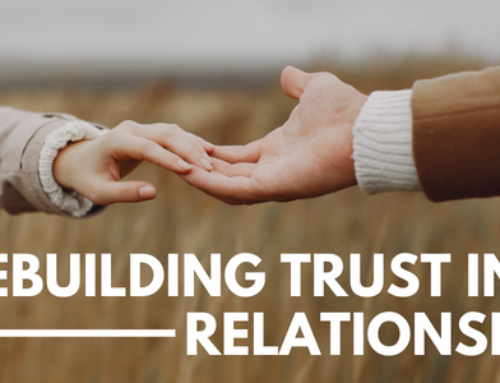Did I Forgive My Spouse Too Soon?
The other day, I was doing an “Ask Me Anything” on the Marriage Helper Instagram and came across a question that really caused me to pause and wonder why the person was asking it. The question was:
“My husband and I are reconciling, and I’m wondering if I forgave him too soon?”
Now there’s a reason that this is really important. And there’s something very critical about forgiveness that you need to understand.
- Side note: If you’re not following us yet on Instagram, you should! Go follow us here! https://www.instagram.com/marriagehelper/
The reason it caused me to pause is because it made me recall all the times I’ve held onto resentment and unforgiveness in my personal life AND all the times I’ve heard friends, clients, and people I’ve worked with hold onto resentment and unforgiveness.
I’ve struggled with holding onto resentment and not wanting to forgive. And, I have a family member who has really struggled with the inability to forgive another person who has hurt her the past several years. It’s something that seems to come up in every conversation we have and it affects all of her relationships.
So when I saw this woman’s question on the “Ask Me Anything,” I thought, “I don’t know that you can ever forgive too soon.” In my favorite book, it says that even when a person hurts you, you should forgive them 70 times seven. Basically, it means that forgiveness is something you do for you. It’s something you do to release anger, resentment, and the feeling of wanting to take vengeance on a person for something that they did to you.
Decision Based Forgiveness
If we look at the research and the psychology behind forgiveness, we see that forgiveness isn’t a feeling. It’s something called decision based forgiveness.
So often we think that we need to feel like we’re ready to forgive before we actually make the move to forgive. Before we actually say the words, “I forgive you,” we think there must be a feeling that precedes that… But in actuality, it’s very rare that you’re going to “feel” like you are ready to forgive or that you need to forgive. Why? Because it’s easy to be blind and biased because of hurt, betrayal, and all the feelings that go before us. Therefore, it’s rare to “feel ready” to forgive.
Forgiveness Allows You To Choose To Move Forward
Forgiveness is a decision. It’s a decision you make to release your hurt, your pain. Now, that doesn’t mean you forget it. “Forgive and forget” isn’t a thing. You will always remember it, but the question becomes:
- Are you going to let it keep you stuck in the past, tied down to the hurt?
- Or, are you going to remember it in a way that allows you to choose to move forward as opposed to holding something against someone?
And I don’t think you can ever do that “too soon.” I think the quicker we are to forgive, the more healthy it is for us. You can even look at the research- unforgiveness leads to health problems. People are more likely to become sick over time because they’re holding on to resentment.
Forgiveness allows you to be free. Forgiveness doesn’t mean that you can do what another person has done. And it also doesn’t mean you’re giving permission for the person to continue their damaging behavior. It simply means that you are choosing to release your need for vengeance.
I’ve heard it said before that the lack of forgiving (or unforgiveness) is like you drinking poison and expecting someone else to die from it. Because we are the ones who feel those negative effects- the hurt over and over, the pain, the resentment, the trauma of it over and over. And we’re expecting that something, somewhere, somehow, is going to cause the other person to hurt as much as we have. The bottom line is we can never be sure that that is going to happen even more than that. Even if the other person does hurt, it’s never going to satisfy what happened to us. It’s an insatiable desire and it’s not healthy. It’s not productive and it’s not good for you. And it’s definitely not good for your relationship (especially if it’s a relationship you’re looking to reconcile!).
If You’re Looking To Reconcile…
Maybe you’re reconciling with your spouse and moving past a hurt or a betrayal. Maybe you’re starting to put your marriage back together, and you want to forgive your spouse. Or maybe you don’t want to forgive your spouse, but you know that you should.
If your fear is, “If I forgive them, it just shows them that what they did is okay.” And then, “What if they do it again?” then here’s the thing… You can’t prevent the other person from doing it again. You can never control that. However, the best (and most healthy!) thing for you to do for you is release yourself from resentment. Release yourself from holding onto that grudge and trying to instill justice and vengeance in your own life. Simply forgive.
And I don’t know that you can ever do it “too soon.” I think what this woman meant when she asked this question was:
- She started reconciling
- She forgave her husband
- But now, she’s starting to feel like she did this too soon…
You And Your Spouse Need To Understand Each Other’s Perspective
Maybe they started to move forward but never dealt with the hurt, betrayal, and the pain from the past. And now, they’re in the forgiveness process. And in this process, especially if you’re reconciling the relationship, it’s important for both parties to understand the depth and extent of hurt that the other person went through.
For example, my husband and I went through a terrible time in our marriage. And if we never talked about what happened, if I just had to shut that inside and act like it never happened, I would stay stuck there.
Instead, I had the opportunity to share with Rob the hurt that I felt and why I felt that way. I didn’t do this in a way that was attacking him, but in a way that was sharing what happened to me. Because of this, I felt like he could empathize with it.
But if I had never shared that, if I never felt like he understood my pain, then it might be easier for me to stay stuck there. Why? Because I’m always going to want him to understand and recognize it even though he’s never going to be able to experience it like I did.
That also doesn’t change the fact that I forgave him. I forgave him before he said it. I forgave him for what he did before I knew exactly what was going on. Why did I forgive him? There are many reasons why, but here the top two: Number one, I grew up in a family that taught forgiveness. I saw my mom and dad do that for each other. Number two, because of my belief system- I believe in forgiveness. Now, it was a little bit easier to forgive my husband than other people in my life who I’ve struggled to forgive, but it’s going to be different in every relationship.
You And Your Spouse Need To Feel Heard
When we are reconciling a relationship, we need the ability to feel heard. Now that’s different than forgiveness, but it is a very necessary part of reconciliation (especially in reconciliation of a marriage.) Both parties need to feel heard. You need to understand the other person’s point of view. Once you do, you can understand things you maybe didn’t realize you did, or things you need to apologize for. And the other person might see how things affected you. They may discover something that they had no idea affected you that way! The ability to feel heard and understood sets you up for success in long term reconciliation.
When you’re rebuilding your marriage, when you’re wanting to reconcile and restore it, you don’t just want to go back to where you were. You want to make it better than it ever was before. And that’s why we at Marriage Helper are dedicated to teaching reconciliation in a way that provides hope. We teach a framework that provides exactly what you and your spouse need to do in order to move toward reconciliation. Both of you need to understand each other’s point of view and envision how you want your marriage to look going forward.
You And Your Spouse Can Start Exploring Reconciliation
That’s why we created the new Exploring Reconciliation course for you and your spouse to go through together. Whether you’re saying, “We’re interested. I’m willing to consider what reconciliation might look like. Even though I’m not committed to this marriage right now.” Or, it could be that your spouse has been out of the marriage, but now you’ve experienced a softening in your relationship to where your spouse is saying, “I’m not committing yet, but I would be interested in seeing if we could make it work.” Or, maybe both of you are saying you’re in, but we need help in navigating how this works. Both of those groups. This is for you: https://marriagehelper.com/product/exploring-reconciliation/
Now, if you’re in the spot right now where you’re saying my spouse has moved back in, but they’re really still angry and negative, and don’t want anything to do with the marriage. Then this isn’t for you yet. We have other courses for you, the save my marriage course, or if you can get your spouse to agree, to go with you to one of our turnaround weekend workshops that are online or in person, when that is available, then that is a great option for you.
- Learn more about the Save My Marriage Course: https://marriagehelper.com/product/save-my-marriage/
- Learn more about the Workshop: https://marriagehelper.com/workshops/
The bottom line of all of this is it’s never too early to forgive. When you forgive, you find freedom. And instead realize that forgiveness is for you. Even if you are having trouble forgiving and moving forward in your marriage, we believe there’s hope for you. And we can help you forgive and move forward from this, in our Exploring Reconciliation course, Save My Marriage Course, or in any of our Turnaround Marriage Weekends. We would love to work with you and give you hope, guidance, frameworks and tools that will really give you what you need to restore your marriage, reconcile well, and forgive fully. We would love to help you however we can. To speak with a client representative, please fill out this form here.






